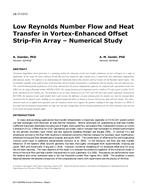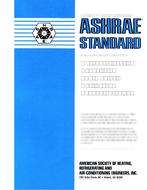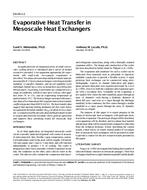A new method of predicting the solar heat gain through complex fenestration systems involving nonspecular layers such as shades or blinds has been examined in a project jointly sponsored by ASHRAE and DOE. In this method, a scanning radiometer is used to measure the bi-directional radiative transmittance and reflectance of each layer of a fenestration system. The properties of systems containing these layers are then built up computationally from the measured layer properties using a transmission/multiple-reflection calculation. The calculation produces the total directional-hemispherical transmittance of the fenestration system and the layer-by-layer absorptances. These properties are in turn combined with layer-specific measurements of the inward-flowing fractions of absorbed solar energy to produce the overall solar heat gain coefficient. The method has been applied to one of the most optically complex systems in common use, a Venetian blind in combination with multiple glazings. A comparison between the scanner-based calculation method and direct system calorimetric measurements made on the LBL MoWiTT facility showed good agreement, and is a significant validation of the method accuracy and feasibility.
Product Details
- Published:
- 1995
- Number of Pages:
- 37
- File Size:
- 1 file , 1.1 MB
- Product Code(s):
- D-RP-548


